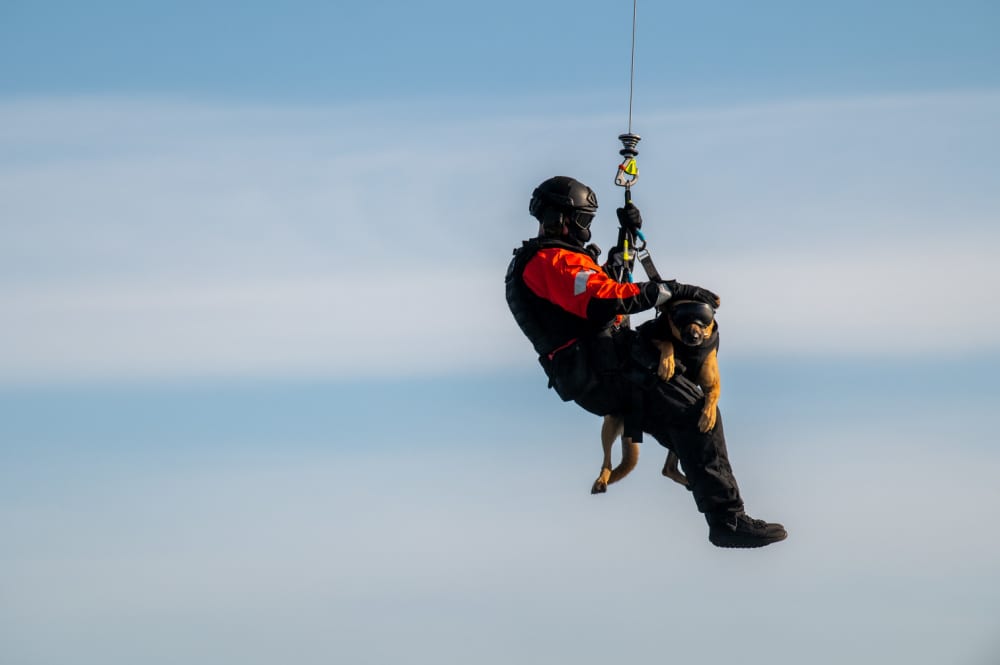Leading with Character: Strengths & Weaknesses
As many of you know, this week I launched my book, Breaking Ice and Breaking Glass: Leading in Uncharted Waters. The book is my way of giving back leadership lessons learned from experiences over my 40 years wearing the Coast Guard uniform.
I’m a new author and it struck me kind of funny that the arduous book-writing and complex publishing process had me navigating in uncharted waters all over again. This was not the retirement I’d envisioned! I found myself out of my comfort zone, trying to come to terms with a seabag full of weaknesses and searching to find offsetting strengths.
Legend of the Two Wolves
Over the years, I’ve thought a lot about whether one should focus on improving weaknesses or leveraging strengths. I’m hard on myself and used to focus on my weakness to a fault. I discovered the hard way that the search for perfection led to nothing but frustration. The impact was negative not only on me but on those around me. I knew something had to change.
There’s an instructive legend about two wolves. In it, a grandparent tells his grandson each person has two wolves fighting inside them—a good wolf and a bad wolf. The grandson asks, “Which wolf wins?” The grandfather tells him, “The one you feed.”
We each have two metaphorical wolves fighting inside us: strengths and weaknesses. The one that wins will be the one you feed. I chose to feed my strengths. I don’t ignore my weaknesses, but I don’t let them consume me, either. I don’t strive for perfection; I seek an optimal outcome that’s perhaps only 85% of the way to perfection. I accept my weaknesses as part of who I am. Yes, I try to improve, but I don’t spend an inordinate amount of time or energy frustrating myself over weaknesses that I may or may not be able to overcome. I’ve found it rewarding and satisfying to leverage my strengths to make the most of my talents and abilities. I chose satisfaction over frustration, and my life has been better for it.
Whether or not leaders choose to feed their strengths or to feed their weaknesses, they must carefully consider the lens through which they evaluate and judge their co-workers, friends, and family. What are the leader’s expectations of others? I learned to look for and reward the strengths—to walk around the decks of the ship or the spaces in an office and look for people leveraging their talents and abilities to do something good. I enjoyed rewarding those people on the spot and feeding their strengths.
Leaders who make a habit of feeding weaknesses and/or demanding perfection may focus to a fault on their co-workers’, friends’, or families’ shortcomings. In doing so they might look past what might be an incredible strength waiting to be tapped to instead zero in on a weakness that denies someone their potential.
Watch them Rise
As with most things in life, there’s a balance to be struck when it comes to feeding the wolves. They’re both fighting inside us, indicating a human tendency toward inner conflict. Yes, the one that we feed, wins, as the legend goes. However, it’s important to understand the wolf we don’t feed because it’s still there inside, lurking. So must we as leaders understand our weaknesses and keep them at bay while we feed our strengths. The same with how we treat those around us. Understand their weaknesses, help them understand and address their weakness, but for goodness sake, feed their strengths and watch them rise!
Look in the mirror. Which wolf do you feed? Do you praise other people for their strengths, or criticize them for their weaknesses?
Please join me again next week for more on Leading with Character.



